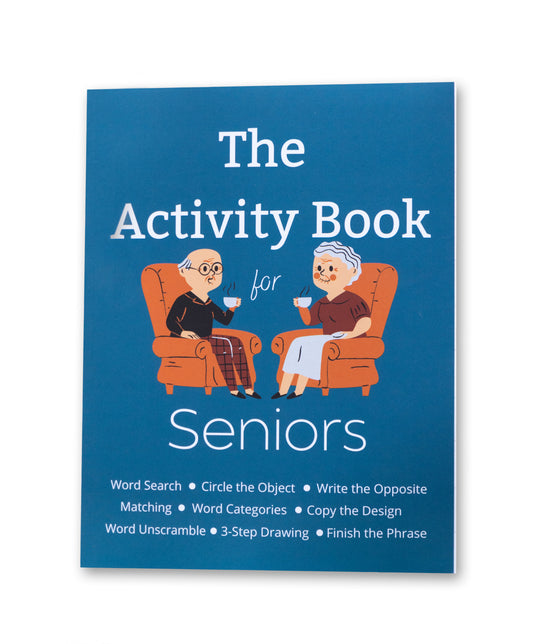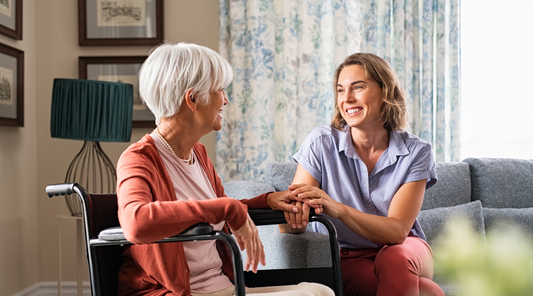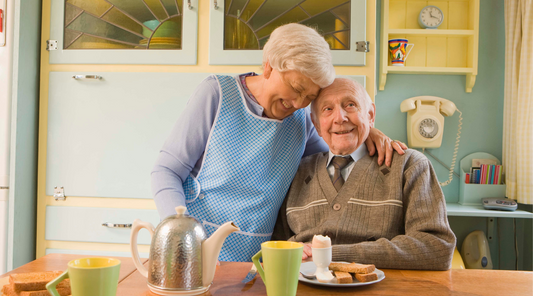
What is dementia?
Share
What is dementia in simple terms?
The word dementia is a general term referring to loss of memory and thinking abilities severe enough to interfere with daily life. It is a broad term signifying any of the many conditions with memory and thinking decline such as Alzheimer’s, Lewy Body Dementia, Vascular Dementia, Frontotemporal Dementia, Parkinson’s Disease or Huntington’s Disease. Dementia is typically associated with older adults. The decline is often first noticed by family and friends with poor complex thinking skills such as impaired judgment and reasoning. A person with dementia might be more forgetful when taking their medications or have increased confusion following a doctor’s recommendation for a medication change. You may also notice that a loved one has body odor more often, as they might be showering less frequently and not be thorough when washing. These examples show that their daily tasks have become affected and it might be a good idea to take a closer look.

What are the signs and symptoms of dementia?
- Repeating statements and questions
- Forgetting appointments and conversations
- Misplacing items
- Difficulty planning and following a plan (ex: meal planning for guests and following a recipe)
- Trouble finding the right words during a conversation
- Withdrawing from conversations and social engagements
- Decreased thoroughness with personal hygiene
- More frequent errors driving, cooking, or paying bills
Although sometimes experiencing symptoms is reflective of normal age-related memory loss, routinely experiencing those symptoms is often reflective of dementia.
What are the 3 stages of dementia?
Dementia is broken down into three stages: mild, moderate and severe. Most people don’t get diagnosed until the moderate stage, but when diagnosed sooner, it can provide opportunity to make helpful lifestyle changes to potentially slow the course of disease. At the mild stage, the person tends to show increased difficulty with complex tasks. At the moderate stage, basic self-care tasks start to show a decline in independence or quality. They tend to need help getting dressed or brushing their teeth. In the severe stage, they tend to require complete assistance for everyday tasks such as toileting, bathing, and meal preparation.
Can you slow down the progression of dementia?
Dementia often is progressive meaning gets worse over time. However, there are ways to slow its progression. Implementing the following strategies helps promote brain function:
10 ways to slow down dementia naturally
- Daily exercise - brisk walks, strengthening, cardio workouts, housecleaning, etc.
-
Stimulating the brain with activities that are not too hard or too easy (playing board games, solitaire, word searches, crafts, hobbies, reading, jigsaw puzzles)

- Maintain social connections
- Get enough sleep
- Reduce stress
- Eat a heart-healthy diet
- Continue to do things for themselves to the extent they can do them safely
- Have a purpose in what they do
- Manipulating things with their fingers: prepare food, do crafts, eat finger foods, do a jigsaw puzzle
What should I do with my mom/dad who has dementia?
People with dementia tend to withdraw from conversations and activities, which can lead to depression and further physical and mental decline. It’s important for your loved one to continue to participate in their daily tasks to the extent that they can do so successfully. Keeping a regular and predictable routine for their day helps seniors to anticipate what comes next. If your loved one has the morning routine of waking up, getting dressed, and making themselves a cup of coffee, they should continue to do that on their own as long as they are doing it safely. Once a task becomes challenging, see if you can offer some subtle cues to make it easier for them. You might simply put the item they need right in front of them to prompt them with what to do next. For example, you might put a coffee filter on the counter as a subtle visual cue for the next step in making coffee. If folding all the laundry has become too hard, try having them just fold the easier items like hand towels and washcloths.
The importance of engaging someone with dementia
It is important for seniors to engage in tasks to keep their mind active. This can be board games, online games, housekeeping tasks, exercise, crafts, music, puzzles, enjoying nature or conversations with others. When choosing activities, it is important that the activity be individualized, purposeful, and failure free. Tapping into the senior’s previous hobbies, interests and life experiences can often lead to areas of interest. A senior that used to collect coins might enjoy sorting coins into a muffin tin. A retired engineer might enjoy working with you on a snap circuit set. As their caregiver, you can be creative in how you adapt an activity so your loved one can participate without failure.


Caregivers of seniors with dementia often have difficulty finding products and ways to engage their loved one in an activity that they will participate in. It is our focus and passion at GrandMinds to help promote quality of care with persons living with dementia through promoting education and creating dementia-friendly products.
Written by Lisa Schilthuis, OT and Alyssa Zehr, OT





